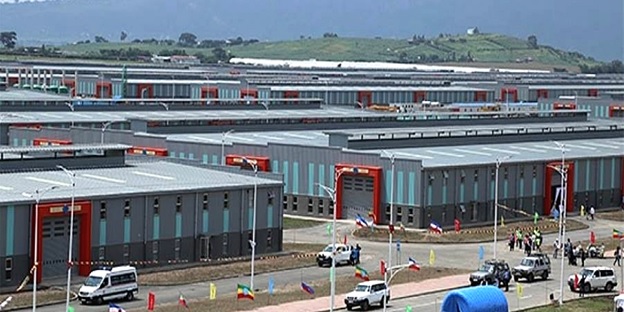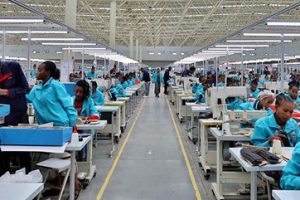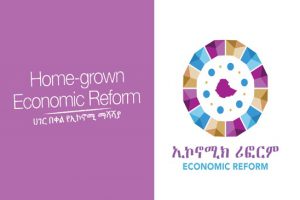
The influence of industrial parks development on people’s livelihood is quite imperative. It is also well recognized that the formation of Industrial Parks (IPs) has brought a new face to the emerging economies like Ethiopia with a wide range of economic and social changes. Besides, the birth and development of IPs in developing countries is an inevitable requirement of socio-economic development, especially from the industrialization and modernization process as well as from the international economic integration trend.
The development of industrial parks affects not only the nation’s socio-economic development, but also has an influence on each household living around them, obviously agricultural lands are acquired and difficulties emerge in developing new livelihood strategies.
Be that as it may, Ethiopia is right now advancing towards prosperity and development devising a range of mechanisms to meet two ends: buttressing homegrown economy and declaring independence in terms of socio-economic advancement. Of the many mechanisms by which Ethiopia has planned to substitute importation and underpin export trade, it is well capitalizing on prevalence of Industrial Parks.
The Ethiopian Herald approached Asaminew Demissie, who conducted his MA thesis on the impact of the development of industrial parks on Ethiopian economy. He said, “Not only IPs have a direct contributions to the household income of actors, but they do also have an inescapable impact on other elements in the economy such as inspiring the attraction for domestic investment, increasing the competitiveness, the innovation and technology transfer, developing auxiliary industries as well as paving the way for domestic enterprises to step by step integrate to the global production value chain.”
Undeniably, IPs development is indispensable to enhance industrialization and modernization and promote local socio-economic growth. According to Asaminew, enterprises operate in industrial parks have resulted in many benefits such as they will attract a large local as well as regional labor force, create jobs and solve social problems at the local as well as national levels. Besides, when industrial parks are built and developed, they create additional industries for people living nearby them. Enterprises operating in industrial parks, if they are effectively run, will contribute to the state budget, thus the government shall use the state budget to invest in health, education, infrastructure developments in the country in general.
Asaminew further elucidated that the industrial parks which are built and developed in some parts of the country have to be well expanded in various areas as they are of significantly useful in bolstering its economy via developing large agricultural lands as well as residential localities thereby bringing about meaningful change regarding the livelihood of citizens.
“Enterprises operating in industrial parks will create new jobs for local workers and have well paved the ways for meeting the requirements that potentially help overcome unemployment,” he added.
Furthermore, there should be viable policies to support local authorities to meet the quality requirements of employer resources so as to enhance the livelihood of people living around the industrial parks, and households need appropriate strategies.
He added that the government of Ethiopia has recently developed industrial parks to respond to the changes in the industrial structure. The country targets at developing industrial parks are recommended to consider the trends, and focus on developing the most ideal industrial park model of other countries as development of industrial parks has two peculiar purposes, industrialization and the balanced national development. The effort geared towards promoting agricultural and Industrial Parks of the numerous types of industrial parks aims at reinforcing viability of agricultural areas to stimulate the balanced national development.
As far as the African Growth and Opportunity Act (AGOA) in relation to industrial parks in Ethiopia is concerned, the US administration recently announced that Ethiopia will be terminated from the AGOA trade preference program as of January 1, 2022 amid the widening conflict in northern Ethiopia, he cited.
It is well remembered that AGOA trade program provides duty-free access for 38 Sub-Saharan African countries to export their product to the US on the conditions that they required to meet certain eligibility criteria.
Over the past few months, however, due to the ongoing war in Tigray and its subsequent humanitarian crisis, there is growing pressure from terrorist Tigray People’s Liberation Front (TPLF) supporters and some lobbyists pushing for the termination of this commercial privilege, which doesn’t have any relationship with the conflict. True, it is a trade opportunity benefiting both sides that can never be related to the conflict unless US does have its own hidden target to hit, he said.
The American Chamber of Commerce in Ethiopia has, on the other hand, requested the US and Ethiopian governments and policymakers not to rush to revoke Ethiopia form the list of the privileged countries that has granted an access to export products to the United States (US) market under AGOA.
“We are expected to swap to other potential alternatives if the American government removes Ethiopia form this opportunity, and one very important thing needs to be taken into account along this line. America’s move against Ethiopia with regard to AGOS not only hurt many Ethiopians and bigger companies which have already invested and aspiring to invest in Ethiopia but it will also have a negative repercussion for Americans as it damages wholesalers’ benefit gained from subsidy,” said Asaminew.
Moreover, he urged the government to ease the political tensions and to save what he described as a ‘noteworthy economic harm.’
“Ethiopian companies are providing affordable products to the US market, so in this regard it is visible that the US itself is benefiting from this opportunity,” highlighted Asaminew, and has called on both sides to see the positive aspects of the trade relation between the two countries which have had long standing bilateral ties.
“If we are looking at the composition of the employees at Industrial Parks in Ethiopia, women comprise the largest number, therefore the lives of these women should not be interrupted due to the tension witnessed,” Asaminew added.
According to him, if companies that get a privilege through AGOA change their industrial location to other eligible countries, it will directly or indirectly affect the life of at least one million Ethiopians.
“Withdrawing Ethiopia from AGOA privilege will also impact the current blossoming economic stratagem in Ethiopia,” said Asaminew, and has appealed to the US government not to take any destructive measure against this pleasure.
Obviously, AGOA eligible countries have 30 percent more advantage when exporting to the US than non-eligible countries, he said adding while giving poverty alleviation assistance to Ethiopia, revoking this opportunity is not logical for the US government, and the US officials are expected to reconsider their decision.
The African Growth and Opportunity Act (AGOA) has successfully supported for the sub-Saharan countries to achieve commerce oriented economic development on one hand, it has been criticized for the limited method for selecting beneficiaries and its legal instability on the other. The future potential structures which are most appropriate for U.S.–Ethiopia trade and investment relationship have to be well surfaced via entertaining a win-win style.
As to Asaminew, it is well comprehended that the AGOA has successfully supported for the sub-Saharan countries to make economic growth for many years and the Act had many problems originated from its institutional manner itself such as entitlement criteria, which opens loopholes to accuse countries of unrelated cases like what US has been doing upon Ethiopia in relation to the north conflict.
BY MENGESHA AMARE
The Ethiopian Herald 23 November 2021




